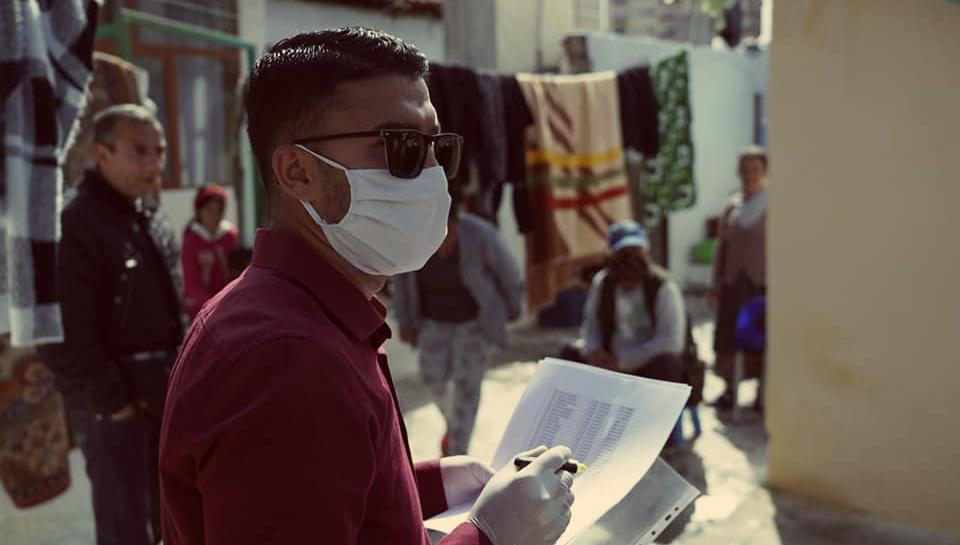International Roma Day: Future challenges and persisting problems in the time of COVID-19

ROMACTED facilitator Raxhi Rakipi in Albania; Photo credits: Municipality of Elbasan
The EU and the Council of Europe (CoE) have a long-standing and wide partnership in this field. The Joint Statement issued by Marija Pejčinović Burić, Council of Europe Secretary General, and Helena Dalli, European Commissioner for Equality, on the occasion of the International Roma Day is indicative of this close partnership. They call on all European countries to comply with the standards laid down in the European Convention on Human Rights and the European Social Charter and to increase their support and protection for marginalised groups, in particular Roma.
Indeed, the EU is cooperating with the Council of Europe via numerous joint programmes centred around the objective of Roma social inclusion. Our programmes, among other things, are promoting, inclusive education and training (INSCHOOL), supporting good governance and Roma empowerment at local level (ROMACT and ROMACTED) and facilitating the access of Roma women to justice (JUSTROM). While these initiatives have produced tangible results, there are still many areas where we need to step up our actions.
As noted in the EU-CoE joint statement, many of the 10-12 million Roma in Europe still suffer from poverty and social exclusion, a phenomenon further aggravated by widespread anti-Gypsyism sentiments. Already the Commission’s 2010 communication on the social and economic integration of Roma in Europe noted the challenges faced by Roma people, including a lack of access to high quality education and poor integration into the labour market, all leading to lower incomes, poor health and, consequently, higher mortality rates. Such findings have also been corroborated by a recent report produced by the EU Fundamental Rights Agency (FRA).
These challenges have become particularly acute during the current crisis. Both FRA and the CoE Commissioner for Human Rights have underlined that with 30% of the Roma having no access to tap water in their households, the standard advice of regularly washing hands with soap and hot water to limit the spread of COVID-19, sounds hollow. At the same time, the overcrowding in Roma neighbourhoods makes social distancing almost impossible, hence putting Roma people at extreme risk. Moreover, the fact that Roma tend to be employed in precarious positions that require physical contact makes the current lockdown particularly harmful for their economic status.

Cleaning and disinfection of a building in Kosovo during the coronavirus pandemic | ROMACTED joint programme
Furthermore, they also have problematic access to healthcare given that many of them lack health insurance and, occasionally, identity documents. Finally, to add insult to injury, the Roma population has been subject to hate speech in the context of the current pandemic. They have been presented as a threat to public health, with certain member states taking special measures targeting them on this basis.
The issue of hate speech in particular was at the centre of the common statement issued by Vice-President Vĕra Jourová and Commissioner for Equality Helena Dalli ahead of the International Roma Day. The statement criticized those who use the current situation to spread fear, anger and hate against the most vulnerable groups, such as the Roma minority. It subsequently recognised that online hate speech and fake stories against Roma people are multiplying while many Roma continue to face anti-Gypsyism, discrimination and socio-economic exclusion.
With such a worrisome picture in mind, there is much work to be done in order to mitigate the effects of the crisis for the Roma population. First of all, it is important for governments to establish facilities for clean running water in these communities. At the same time governments should facilitate the unhindered access of doctors and pharmacies in the Roma communities. Existing local engagement practices with Roma populations suggest that health mediators with trusted access to these communities must play a pivotal role in this effort. Moreover, governments should include special provisions in their economic recovery plans to tackle the economic adversity that the Roma population will face as we exit the crisis.
All in all, most of these measures will be included and reinforced in the EU’s forthcoming post-2020 Roma Strategy and the new Council of Europe Strategic Action Plan for Roma and Traveller Inclusion (2020-2025). As Vice-President Jourová and Commissioner Dalli stated in relation to the EU’s post-2020 Roma strategy “In these times, greater efforts must be put into ensuring that Roma people are included in society and that they have equal access to the basic needs, thus ensuring their protection against infection. “ Hence, via these policy pacts the EU and the Council of Europe are demonstrating their strong commitment to the promotion and protection of the human rights of Roma and Travellers in Europe. In this respect, the EU’s constant and effective coordination with the Council of Europe will be pivotal.





